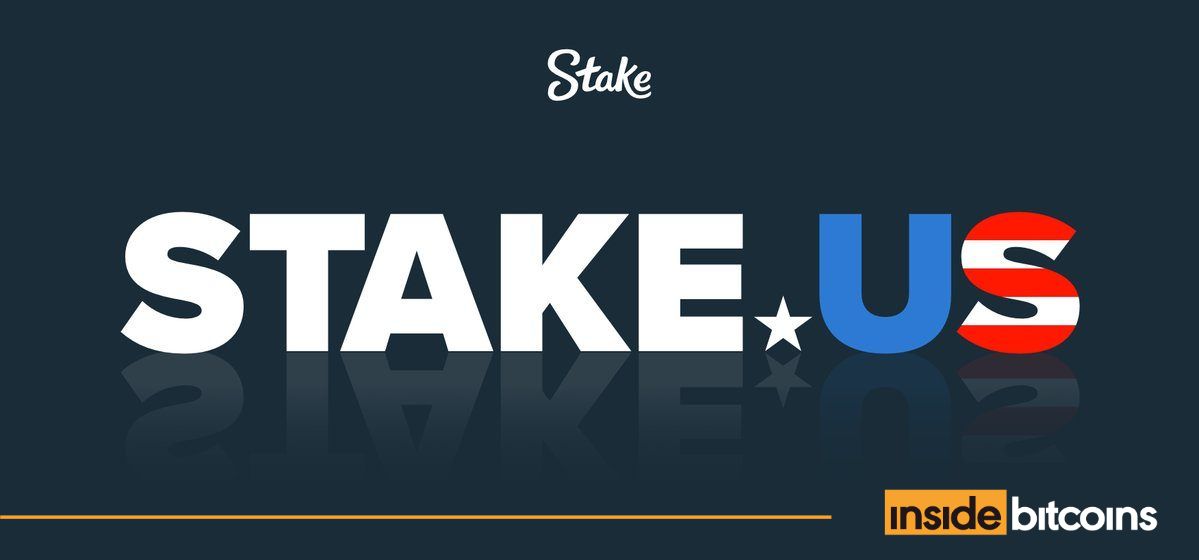The increasingly popular online platform Stake.us finds itself embroiled in fresh controversy as Alabama becomes the latest battleground in the ongoing debate over what constitutes gambling in the digital age. A recently filed class action lawsuit is challenging the platform’s assertion that it offers mere “sweepstakes” entertainment rather than gambling services. This case highlights the complex intersection of cryptocurrency, gaming, and state regulations that continues to evolve in America’s patchwork legal landscape.
The Alabama Challenge: New Lawsuit Takes Aim at Stake’s Dual-Currency Model
On May 2, 2025, Laura Hall, her underage child J.C., and additional plaintiffs filed a lawsuit against Sweepstakes Limited, the company behind Stake.us, in the U.S. District Court for the Northern District of Alabama. The legal action claims that thousands of Alabama residents have potentially lost money through what the plaintiffs characterize as illegal gambling activities thinly disguised as sweepstakes entertainment.
The crux of the legal challenge centers on Stake.us’s clever two-currency system that critics argue is designed specifically to circumvent gambling regulations. When users purchase “Gold Coins” – ostensibly for entertainment purposes with no real-world value – they typically receive “Stake Cash” as a bonus. While the platform maintains these digital tokens have no monetary value, users can ultimately redeem Stake Cash for cryptocurrencies or gift cards after meeting certain play requirements.
The lawsuit contends:
Stake attempts to separate the element of consideration from chance by offering a two-tiered system of virtual coins, both of which function like casino chips, while calling the whole affair a ‘sweepstakes.
This arrangement, plaintiffs argue, effectively transforms harmless entertainment into an unlicensed casino operation.
The platform’s extensive gaming library has also drawn scrutiny. With more than 200 online games including slots, poker, and various casino-style table games, critics argue the offerings closely mirror those of traditional gambling operations – activities explicitly prohibited under Alabama’s strict anti-gambling laws.
From Dice Games to Global Empire: The Evolution of Stake
To understand Stake.us, it helps to trace the company’s roots back to 2013, when Primedice launched under the leadership of Ed Craven, Bijan Tehrani, and Chris Freeman. This early dice gambling site represented the foundation of what would eventually grow into the Stake empire. The connection between these platforms remains evident today, with both sites cross-linking and sharing leadership structures, including CEO Mladen Vučković who has guided the operation since 2017.
The critical transition came in 2016 when Primedice co-founders Craven and Tehrani established Easygo, a game development company creating titles for online casinos. While reportedly launched as a joint venture, Ed Craven is listed as the sole shareholder of the company. This strategic move positioned the team to expand beyond simple dice games and develop a comprehensive gambling ecosystem.
Stake.com officially launched in 2017 as a cryptocurrency-based gambling platform, allowing users to place bets using Bitcoin and other digital currencies. The platform’s evolution accelerated in 2019 with the introduction of a sportsbook, followed by major sports sponsorship deals by 2021. The 2022 launch of Stake.US represented a strategic pivot to capture the American market through the sweepstakes model now under legal challenge.
The growth trajectory speaks for itself – by mid-2024, Stake had processed a staggering 253 billion bets, nearly quadrupling the 65 billion recorded just two years earlier in 2022. This meteoric rise highlights both the platform’s popularity and the effectiveness of its marketing and innovation strategies.
The Alabama Context: Strict Laws and Sweepstakes Claims
What makes the Alabama case particularly significant is the state’s extraordinarily restrictive stance on gambling. Unlike more permissive jurisdictions, Alabama has no state lottery, no commercial casinos, and explicitly prohibits online casino-style games. Despite these clear prohibitions, Stake.us does not include Alabama on its list of restricted states, allowing residents to participate in activities that the plaintiffs characterize as thinly-veiled gambling.
The lawsuit alleges that Stake’s sweepstakes model represents “an old gimmick that was once popular among criminals in the early 2000s,” drawing unflattering parallels to the once-ubiquitous “internet café” gambling operations that faced widespread bans. These operations similarly attempted to circumvent gambling regulations through technical workarounds while functionally offering gambling experiences.
Celebrity Endorsements and Marketing Strategies
Further complicating Stake’s legal position is its high-profile partnership with Canadian rapper Drake. The lawsuit specifically highlights this collaboration as problematic, suggesting it blurs the distinction between celebrity endorsement and gambling promotion – particularly concerning when the company simultaneously insists it does not facilitate actual betting.
Drake frequently appears in advertisements encouraging users to join him on the platform, creating a sense of accessibility and glamour around Stake’s offerings. This celebrity-driven approach has helped the platform stand out in an increasingly crowded market while appealing directly to younger demographics – including potentially vulnerable populations.
Beyond celebrity partnerships, Stake has invested heavily in sports sponsorships to build brand recognition and project legitimacy. These marketing efforts have contributed significantly to the platform’s rapid user acquisition and market penetration.
Financial Growth and Market Position
Despite mounting legal challenges, Stake.com has established itself as a major force in the digital gambling landscape. Financial reports indicate the platform generated over $2.5 billion in gross gaming revenue last year alone – a remarkable increase from the previous year’s $105 million and substantially higher than the 1.8 billion Australian dollars ($1.2 billion) reported in 2021.
The platform has achieved particularly strong market penetration in certain regions, ranking as the number one online gambling destination in Canada. Since 2019, Stake’s user base has expanded dramatically, with total website visits exceeding 25 million – reflecting substantial engagement and growth.
While comprehensive financial details like monthly revenue, liabilities, and operating costs remain closely guarded, industry analysts project that Stake.com will rank somewhere below the top 20 in the broader online gambling and sports betting sector in 2025. However, within the cryptocurrency-focused gambling niche, it’s positioned solidly in the top 15, indicating its strong specialized market presence.
The Broader Landscape: Technology and Competitors
Stake.us operates in an increasingly sophisticated technological ecosystem. The platform leverages blockchain technology for transactions, particularly when users convert their Stake Cash to cryptocurrencies, providing enhanced transparency and security. The games themselves utilize advanced random number generators to ensure fair play, complemented by high-quality graphics and interactive elements designed to maximize user engagement.
Mobile optimization represents another critical technical priority, allowing seamless access across devices – a necessity in today’s smartphone-dominated digital landscape. The integration of cryptocurrency technology fundamentally distinguishes Stake from traditional gambling operations, offering faster transactions, reduced fees, and increased privacy.
The global online gaming market reached approximately $64 billion in 2022 and is projected to grow at a compound annual rate of 12% through 2030. This expansion is driven largely by increasing internet penetration – 94% in the United States and 56% globally as of 2022 – combined with the proliferation of affordable smartphones capable of supporting advanced technologies like augmented reality, machine learning, and artificial intelligence.
In this booming market, Stake.us faces competition from established sweepstakes and social casino platforms including Chumba Casino, LuckyLand Slots, and Global Poker – all employing similar models to operate in jurisdictions where traditional online gambling faces restrictions.
A Pattern of Legal Challenges
The Alabama lawsuit represents just one of several legal challenges Stake.us currently faces. Similar class action lawsuits have been filed in California and Illinois, indicating a growing pattern of scrutiny across multiple jurisdictions. While no court has yet ruled definitively against sweepstakes-based platforms like Stake.us, the increasing volume of legal challenges suggests a potential shift in how American courts view these operations.
The central legal question revolves around whether the two-currency model genuinely circumvents gambling regulations or merely represents a technical workaround that still constitutes gambling in practice. Courts will need to determine whether the ability to convert in-game currency to items of real-world value effectively creates a gambling environment, regardless of the intermediary steps involved.
AI and Technological Innovation Transforming the Sector
Artificial intelligence is increasingly reshaping the online gambling landscape, including sweepstakes platforms. Advanced personalization algorithms analyze user behavior patterns to deliver tailored game recommendations and promotions, substantially increasing engagement and retention rates. AI-powered chatbots provide 24/7 customer support, handling routine inquiries while enabling human agents to focus on complex issues requiring nuanced responses.
Machine learning systems can detect patterns suggestive of problem gambling, allowing platforms to proactively implement responsible gaming measures when concerning behaviors emerge. These same capabilities help identify potential fraud or money laundering activities, strengthening security protocols while satisfying regulatory requirements.
Augmented reality represents another frontier, with the potential to create immersive gaming experiences blurring digital and physical environments. As AR technology becomes more sophisticated and accessible, platforms like Stake may incorporate these features to differentiate their offerings and enhance user experiences.
Investment Landscape in Crypto Gaming
The intersection of cryptocurrency and gambling continues attracting substantial venture capital interest. Analysts forecast venture investments in crypto projects could reach $18 billion in 2025, surpassing previous years’ funding levels.
Three areas drawing particular investor attention include stablecoins, which have proven essential in emerging markets facing currency instability; tokenization of real assets (RWA), which converts traditional investments like securities and collectibles into blockchain tokens; and the integration of AI with blockchain infrastructure to enhance efficiency and security.
The tokenization market alone could reach $30 trillion by 2030, representing a massive opportunity for platforms that successfully navigate the technical and regulatory complexities involved.
Despite these opportunities, analysts caution that macroeconomic headwinds, including geopolitical tensions and increasing deficit spending, could introduce volatility and uncertainty to these markets.


